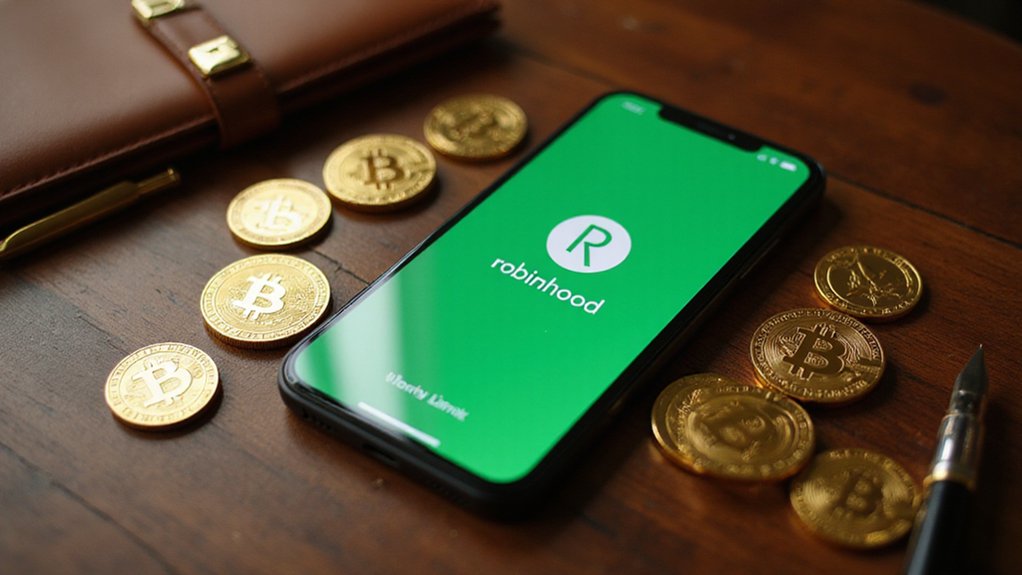Robinhood is orchestrating what amounts to a thorough reimagining of its business model, pivoting from commission-free stock trading disruptor to would-be architect of a unified financial ecosystem that seamlessly blends traditional equities with blockchain-native assets.
Robinhood’s audacious pivot transforms commission-free trading into a unified ecosystem bridging traditional equities with blockchain-native financial infrastructure.
The company’s proprietary blockchain network, built on Arbitrum’s layer-2 infrastructure and slated for launch between late 2025 and early 2026, represents perhaps the most audacious gambit in fintech’s ongoing convergence with decentralized finance.
The platform’s European tokenized stock offering—featuring over 200 U.S. equities and ETFs available for near round-the-clock trading—effectively dissolves the arbitrary boundaries between traditional markets and blockchain rails. This isn’t merely technological novelty; it’s a calculated assault on market inefficiencies that have persisted largely because incumbent institutions benefit from the status quo’s friction.
Robinhood’s acquisition spree underscores the company’s serious intent. The purchase of Bitstamp provides established crypto exchange infrastructure, while WonderFi adds decentralized finance capabilities that would otherwise require years of internal development.
These strategic moves suggest management recognizes that building extensive crypto competency demands both technical expertise and regulatory navigation—areas where acquisition often trumps organic growth.
The introduction of perpetual swaps for European customers and staking services for U.S. investors demonstrates Robinhood‘s evolution beyond simple spot trading. These products appeal to sophisticated traders seeking leveraged exposure and passive income opportunities, respectively, while generating additional revenue streams through fees and spread capture.
Market response has been emphatic: Robinhood’s stock surged over 12% following expansion announcements, contributing to year-to-date gains exceeding 130%. Such investor enthusiasm reflects confidence in the company’s ability to execute on its ambitious vision of democratizing finance through blockchain technology.
The ultimate test lies in execution. Creating a proprietary blockchain that supports self-custody, cross-chain bridging, and 24/7 trading while maintaining regulatory compliance across multiple jurisdictions represents a formidable technical and operational challenge.
Yet if successful, Robinhood’s integrated platform—offering seamless access to both centralized and decentralized markets—could fundamentally reshape retail trading by eliminating the artificial distinction between “traditional” and “crypto” assets. By leveraging smart contracts and permissionless blockchain infrastructure, the platform could enable peer-to-peer financial services that bypass traditional intermediaries entirely.
Whether this transformation materializes as promised remains the trillion-dollar question.






